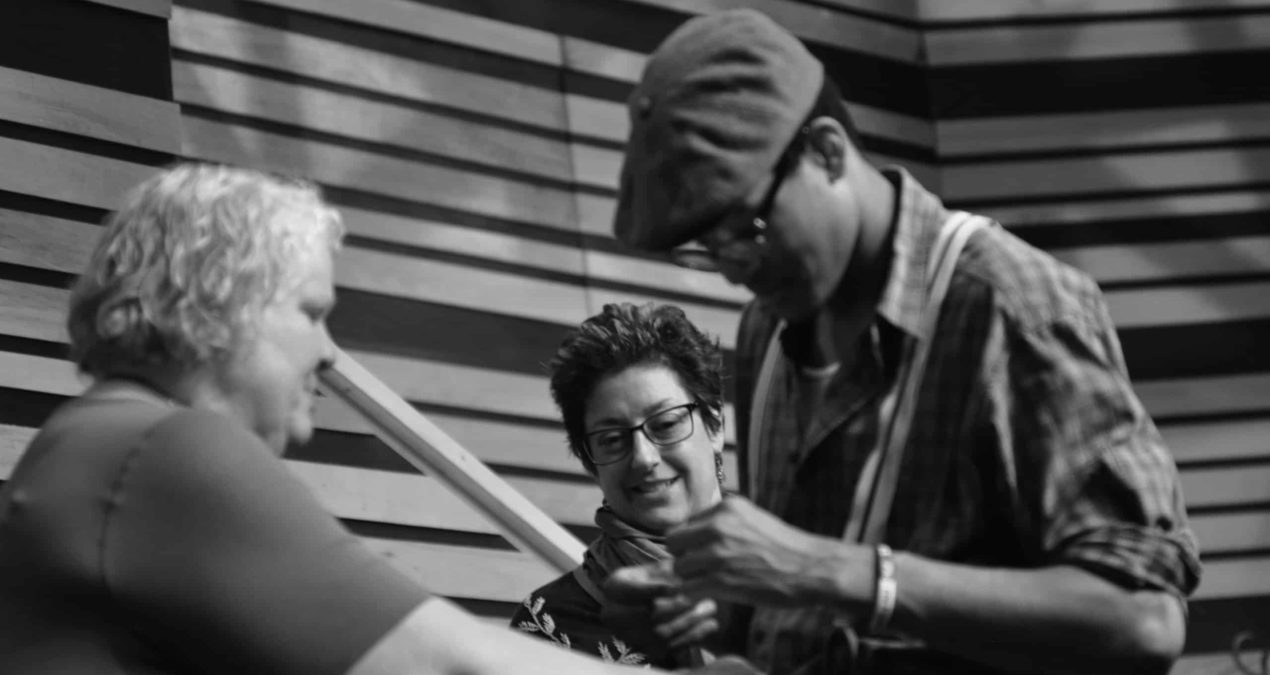MAT SCOTT
Arts & Life Editor
The social and political climate in America right now makes August Wilson’s The Piano Lesson an apt production for Denison’s first mainstage play of the year. Co-directed by Stafford Berry Jr. of the dance department and Cheryl McFarren of the theatre department, the play opens on Friday, Oct. 14 at 8 p.m. in the LeRoy “Ace” Morgan Theatre.
The play features an all-black cast and is set near the the end of the 1930’s, during the time of Jim Crow laws in the aftermath of Plessy v. Ferguson.
The show will be performing at Denison on Oct. 14 and 15 at 8 p.m. and on Oct. 16 at 2 p.m., then will move to the Short North Stage for the August Wilson Festival from Oct. 19-22.
“The last time Stafford and I collaborated in 2013, August Wilson was at the top of our list,” McFarren said. “But we chose a different play because we experienced a little bit of concern from the students who would have been involved at that point that it didn’t seem like the right time at that point to tell a story that invokes the terrible, racist history of this country quite as blatantly as it did then.”
“Now, three years later, we’re a little more creative. We didn’t back down,” McFarren said.
As the production only features one female lead, it was difficult for the directors to find enough black men to fill the remaining roles. The cast features Vanessa Gibson ‘17 as Berniece, De Fulton Jr. ‘19 as Doaker, Jabari Johnson ‘17 as Avery, Sianneh Jensen ‘18 as Grace, Lester Harris ‘17 as Boy Willie and Vaval Victor ‘20 as Lymon, as well as two non-student actors, Devyn Brown and Ron Jenkins as as Maretha and the Whining Boy respectively.
As the production crew is mostly white and the cast is entirely black, there were some issues when running lines that were creatively overcome by the production team. According to McFarren, cast and crew members both white and black were uncomfortable with the white stage managers using “the N-word,” which appears frequently in the text of the play, in the context of running or prompting lines.
“They were given the word ‘neighbor,’” McFarren said. “Has two syllables, and so now when the word has come up and somebody has needed a cue, we would say, ‘Neighbor, you ain’t taking this piano out of the house!’ or whatever the line is. We’ve had to talk to each other in ways that are challenging.”
Fulton was contacted right before auditions and encouraged to try out by assistant director Megan Lovely ‘19. He described the experience of performing in an all-black cast as “magical.”
“At the time, I didn’t know that the play was an all-black show,” Fulton said. “I was like, ‘Finally, Denison has something.’ I think it’s going to be a really great experience for people who come and see this because the audience will probably be predominantly white. I think it’ll be a very different experience for people watching.”
Fulton also spoke about the transition “from De to [his role as] Uncle Doaker,” saying that it was both hard and familiar.
“We’ve grown up around this culture in real life. My family is from Mississippi. The slang is unique. It’s hard. Even though you’re familiar with it and have been around it your entire life, it’s hard acting it,” Fulton said. “At Denison, you’re surrounded by proper sentences and words. I think one of my lines is, ‘Berniece ain’t said about that.’ We would say something like, ‘Berniece hasn’t said anything about that,’ but the line is ‘Berniece ain’t said about that.’ It doesn’t make sense to me as De, the person behind the role, but as Doaker, it makes sense.”
Lovely also spoke about the role of black actors in theatrical productions, talking about the conventions and potential problems of “color-blind casting,” which is the practice of assigning roles to actors regardless of ethnicity.
“It’s not that [students of color] don’t have the opportunity to perform; it’s that they they’re having to perform a white character, or a character who speaks in a different vernacular. It’s really special for students to be able to perform a character with whom they identify.”
“Many times this ‘color-blind casting’ does more harm than good. Just because it allows minority actors a chance to star in the ‘mainstream’ roles, they never get a chance to celebrate their own culture,” Lovely said.
The set for the production was designed by Peter Pauze, also of the theatre department. Pauze was required to create a show that could exist in two very different spaces; the Short North Stage has a much different audience relation than Ace Morgan. The design wanted to evoke “period, history and texture,” according to McFarren, and did not want to sanitize.
“We wanted to evoke that all is not entirely well in this world, and that the audience is part of that.”
Photo courtesy of Trevean Johnson

